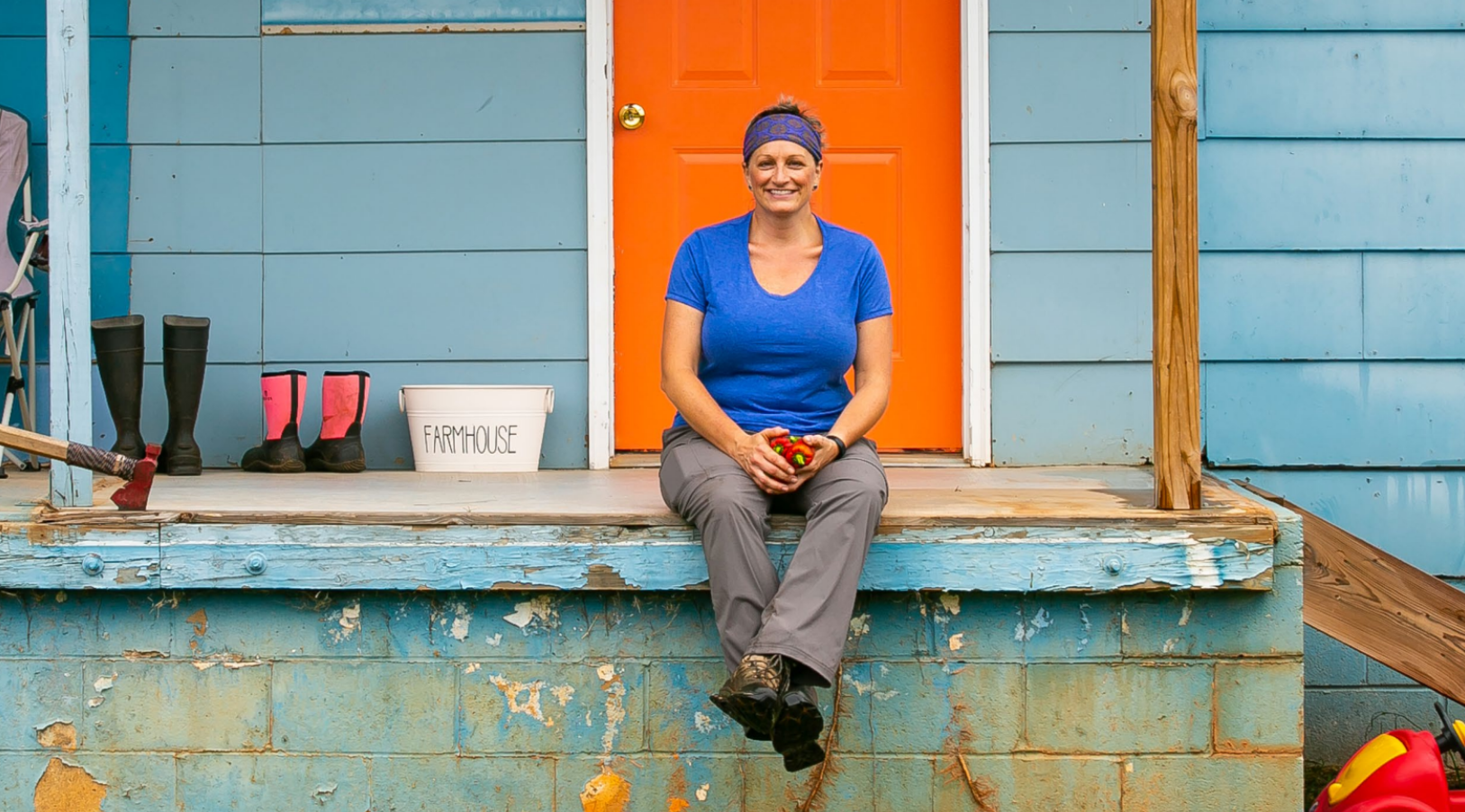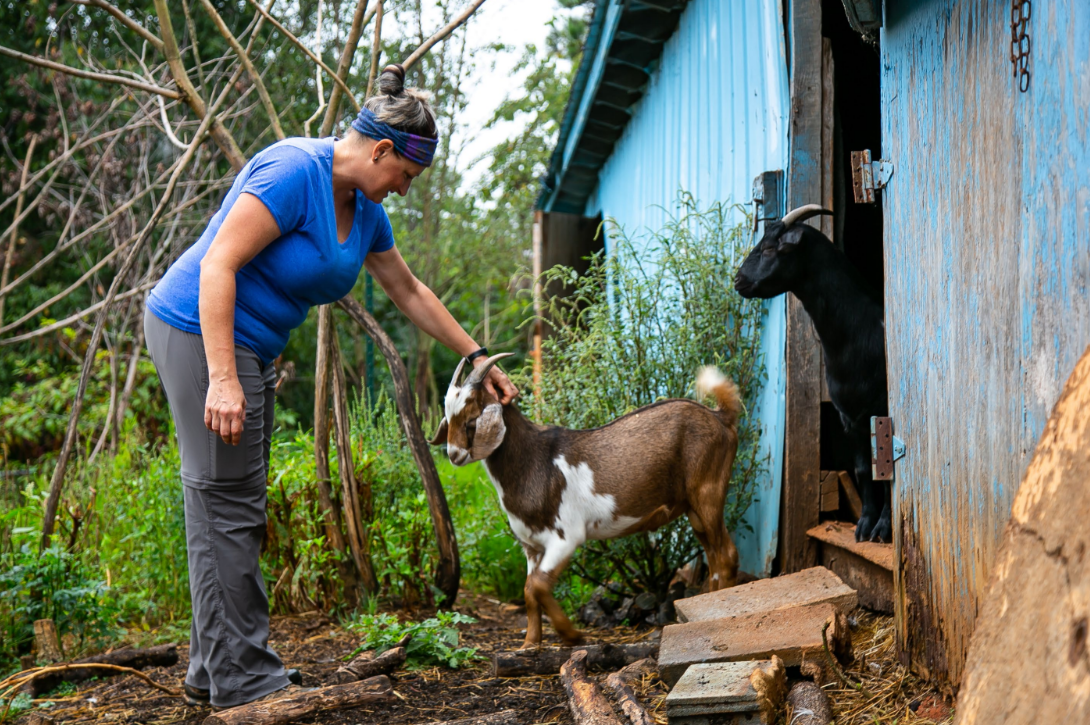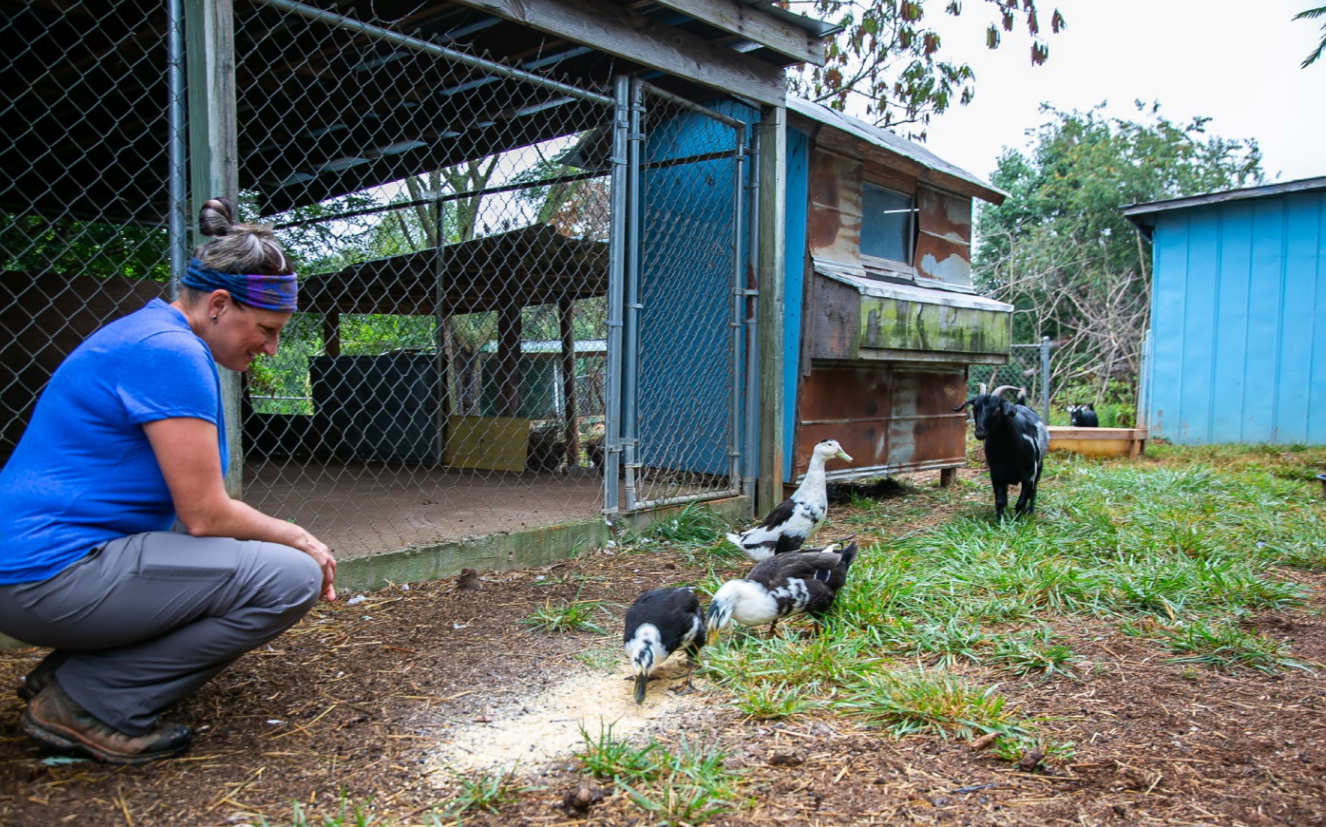First-Generation Farming – NC Farm School Stories
go.ncsu.edu/readext?967688
en Español / em Português
El inglés es el idioma de control de esta página. En la medida en que haya algún conflicto entre la traducción al inglés y la traducción, el inglés prevalece.
Al hacer clic en el enlace de traducción se activa un servicio de traducción gratuito para convertir la página al español. Al igual que con cualquier traducción por Internet, la conversión no es sensible al contexto y puede que no traduzca el texto en su significado original. NC State Extension no garantiza la exactitud del texto traducido. Por favor, tenga en cuenta que algunas aplicaciones y/o servicios pueden no funcionar como se espera cuando se traducen.
Português
Inglês é o idioma de controle desta página. Na medida que haja algum conflito entre o texto original em Inglês e a tradução, o Inglês prevalece.
Ao clicar no link de tradução, um serviço gratuito de tradução será ativado para converter a página para o Português. Como em qualquer tradução pela internet, a conversão não é sensivel ao contexto e pode não ocorrer a tradução para o significado orginal. O serviço de Extensão da Carolina do Norte (NC State Extension) não garante a exatidão do texto traduzido. Por favor, observe que algumas funções ou serviços podem não funcionar como esperado após a tradução.
English
English is the controlling language of this page. To the extent there is any conflict between the English text and the translation, English controls.
Clicking on the translation link activates a free translation service to convert the page to Spanish. As with any Internet translation, the conversion is not context-sensitive and may not translate the text to its original meaning. NC State Extension does not guarantee the accuracy of the translated text. Please note that some applications and/or services may not function as expected when translated.
Collapse ▲In the fall of 2011, Cassie Tuckey and her family moved to North Carolina. Originally from Michigan, the Tuckey’s accidentally came across property that had stood vacant for about six years before they purchased it. When they considered the property, the Tuckey’s were in the process of thinking about what they could do as a family. “We didn’t set out to be farmers and weren’t looking for farming property,” recounted Cassie. “We wanted to do something that would allow participation from each family member, and wanted something that allowed our entrepreneurial minds to thrive, and our talents to be used.”
The property located on the edge of the Appalachian Mountains inspired the Tuckey’s enough to purchase it. They decided to transform it into a farm and Cassie enrolled in the NC Farm School program.
“I attended farm school as a way to understand how to ‘be a farmer,’ and to figure out where in the world to start… I didn’t realize how much I needed to know,” confessed Cassie. As Cassie attended NC Farm School, they also learned more about their property. They discovered that it had once been used as a gun range and housed a sporting good store. “Turns out it is a well known property to the people in the area. As we thought about what to do with the property, we thought it might be a great opportunity to help others get involved in the ‘local farming’ movement by providing food, goods grown and processed locally, as well as providing other people a way to raise animals on their own,” explained Cassie. With concern for her family health and her community, Tuckey wanted to raise products in a natural and humane way that is beneficial to the soil and the environment.
For most first generation farmers, the upfront costs can be daunting. The Tuckey’s have taken their time implementing their farm plan choosing items that required minimal investment in infrastructure, as well as taking into consideration the skills and interests of each of their family members. “We started with things we were interested in or thought we could do well,” noted Cassie.
The Tuckey’s began raising goats, chickens for meat production and laying hens to sell eggs, and established a layer hen breeding program to sell laying hens to other farmers or consumers. To accommodate her family’s food needs and as an additional income source, Cassie also began a vegetable garden.
Now, the farm has three generations living on the property with everyone contributing to the business enterprise. When Cassie finished NC Farm School, she not only graduated with a deep understanding that farming was a business, she brought back state-wide resources and a connected network. “The most unexpected, yet beneficial piece of Farm School are the networks created. This is a very tough business, requiring significant time investment. Having a group of people to turn to for guidance, information, support and encouragement in the local agents and fellow Farm School graduates is invaluable,” remarked Cassie.
Cassie understands that slow and steady wins the race. Farming is not a sprint and successful farms depend on family and community. As they become experts in breeding meat and egg laying chickens, the Tuckey’s hope to support and assist other farmers.


